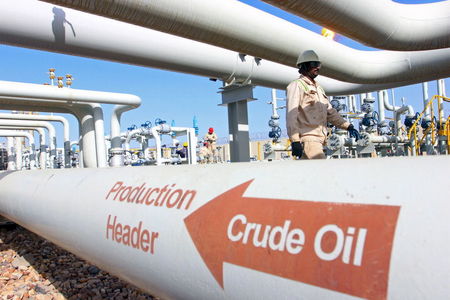
Investing.com — Oil prices fell to a near two-month low Tuesday on concerns about demand growth in China, the world’s largest crude importer, while the lack of immediate escalation in tensions between Israel and Hezbollah saw traders price out a risk premium.
At 08:30 ET (12:30 GMT), Brent oil futures fell 0.6% to $78.58 a barrel, while West Texas Intermediate crude futures dropped 0.6% to $75.35 a barrel.
Weak Chinese data weighs
A raft of disappointing economic news from China has weighed heavily on commodity prices, particularly after the country’s GDP data disappointed earlier this month.
The Politburo, a top decision-making body of the ruling Communist Party, pledged at the end of its July meeting to pursue a “proactive” fiscal policy, suggesting more stimulus ahead in order to boost the country’s struggling economy.
“Weak Chinese demand remains the driver for the oil market, following a raft of fairly bearish data in recent weeks. China is important for the global oil balance, as it is expected to make up more than 50% of global oil demand growth in 2024, so slower-than-expected growth can dramatically change the balance,” said analysts at ING, in a note.
Supply risks ease as Israel says not seeking war
Traders were also seen pricing out a risk premium from crude after media reports said Israeli officials were not seeking all-out war with Lebanon in their retaliation for a rocket strike that killed 12 in Israel-occupied Golan Heights.
Officials said they were preparing for a few days of fighting following the strike, although Prime Minister Benjamin Netanyahu flagged a “harsh” response to the attack.
While the prospect of an all-out war in the Middle East does present some supply risks for crude, there has been so far little disruptions in oil production in the region, even with the Israel-Hamas war reaching its ninth month.
OPEC meeting, US inventories due
Caution before a meeting of the Organization of Petroleum Exporting Countries this week also weighed on sentiment, although recent weakness in crude is likely to see the cartel downplay any plans for scaling back production cuts.
There could also be some support from the latest U.S. inventory reports due this week, which are expected to show lower crude and fuel stocks.
This post is originally published on INVESTING.




